What are Ceramic Ball Bearings
Ceramic ball bearings are specialized types of bearings that employ ceramic balls instead of traditional steel ones. These bearings are designed for applications that demand high-speed operation, increased durability, and resistance to extreme environments. The ceramic material typically used for the balls includes silicon nitride (Si3N4), zirconium dioxide (ZrO2), or alumina (Al2O3), each offering unique properties such as lower density, higher hardness, and resistance to wear and corrosion.
These advanced components are crucial for industries where performance and reliability are paramount. For instance, in high-speed machinery, the reduced weight of ceramic balls minimizes centrifugal forces, allowing the bearings to run at higher speeds with less energy consumption. Their exceptional hardness and smooth surface finish also contribute to increased bearing lifespan by reducing wear rates.
The operation of ceramic ball bearings relies on the same principles as traditional bearings: they reduce friction between moving parts by providing smooth balls that roll with minimum resistance. However, due to their material properties, ceramic ball bearings can operate at higher temperatures without losing structural integrity, making them suitable for applications ranging from aerospace to manufacturing plants where thermal conditions are a concern.
Types of Ceramic Ball Bearings
Ceramic ball bearings come in various forms to meet the demands of different applications. Here is an overview of some common types:
Hybrid Ceramic Ball Bearings: These bearings combine ceramic balls with steel inner and outer rings. They offer a balance between the benefits of ceramic materials and the robustness of steel, making them suitable for high-speed applications where both load capacity and reduced friction are important.
Full Ceramic Ball Bearings: Constructed entirely from ceramic materials for both the balls and the rings, full ceramic ball bearings provide excellent resistance to corrosion and wear. They are often used in environments that are corrosive or where high purity is required, such as in medical or semiconductor manufacturing equipment.
Angular Contact Ceramic Ball Bearings: These are designed to withstand significant axial loads in one direction in addition to radial loads. They have raceways that are offset relative to each other, which allows them to operate well in high-speed applications like those found in automotive and industrial machinery.
Ceramic Thrust Ball Bearings: Specially designed to handle axial loads, these bearings are ideal for applications such as vertical shafts. Their ceramic construction enhances their ability to withstand high-speed operation and temperature extremes.
Deep Groove Ceramic Ball Bearings: Known for their versatility, deep groove bearings can support both radial and axial loads. They can operate at high speeds and are widely used across various industries including electric motors, automotive, and household appliances.
How to choose Ceramic Ball Bearings
Selecting the right ceramic ball bearing involves understanding the specific requirements of your application in terms of speed, load capacity, environment, and durability. Consider the following aspects when choosing ceramic ball bearings:
Application Environment: Identify if the bearing will be exposed to corrosive substances, extreme temperatures, or require non-magnetic properties. Full ceramic bearings are ideal for harsh environments while hybrid ceramics may suffice for less demanding conditions.
Load Capacity: Understand the expected radial and axial loads that the bearing will need to support. Deep groove bearings can accommodate a variety of load scenarios whereas angular contact or thrust bearings might be necessary for specialized directional loads.
Speed Requirements: High-speed applications benefit from the reduced weight and lower friction properties of ceramic ball bearings. Hybrid bearings may be a cost-effective solution when very high speeds are not required.
Precision Rating: The degree of precision needed will affect your choice. Bearings come with different precision ratings such as P0 (standard) through P2 (high precision), which determine their suitability for precision-demanding applications.
By considering these factors alongside your industry-specific requirements—be it in machinery repair shops or skateboarding—business buyers can make an informed decision on which type of ceramic ball bearing best suits their needs.
Best Ceramic Ball Bearings on Alibaba.com
Alibaba.com stands out as a global marketplace that connects buyers with a wide array of suppliers offering ceramic ball bearings suited for diverse industrial needs. With a vast selection of products from over 200,000 suppliers across nearly 5,900 categories, Alibaba.com makes it easier than ever to find the precise bearing you require for your specific application.
Whether you're looking for hybrid or full ceramic ball bearings for high-speed machinery or seeking solutions that can withstand extreme temperature conditions in your manufacturing plant, Alibaba.com's extensive network ensures you can source what you need swiftly and efficiently. Moreover, features like mobile buying compatibility and local language communication aid streamline procurement processes for businesses worldwide.
Alibaba.com is not only about variety but also about trust and security in B2B transactions. The Trade Assurance service is a testament to its commitment to safeguarding payments until delivery is completed, giving buyers peace of mind when purchasing bulk quantities or even single pieces of more expensive commercial products. This comprehensive approach makes Alibaba.com an indispensable partner for small and medium-sized businesses aiming to enhance their operations with top-grade power transmission components like ceramic ball bearings.
Common FAQs for Ceramic Ball Bearings
What are the advantages of ceramic ball bearings over traditional steel bearings?
Ceramic ball bearings offer higher speed capabilities, increased durability, and resistance to extreme environments, including high temperatures and corrosive substances. They also reduce friction and wear, providing a longer service life.
In what applications should I consider using full ceramic ball bearings?
Full ceramic ball bearings are best suited for applications that involve corrosive environments, require non-magnetic properties, or operate under extreme temperatures where high purity is essential, such as in medical equipment or semiconductor manufacturing.
Can hybrid ceramic ball bearings handle heavy loads?
Hybrid ceramic ball bearings can support substantial loads due to their steel rings. They are a suitable choice for applications that need the combined benefits of steel's load capacity and ceramic's reduced friction.
Are ceramic ball bearings corrosion-resistant?
Yes, ceramic ball bearings are highly resistant to corrosion. Full ceramic bearings, in particular, offer superior corrosion resistance compared to their metal counterparts and are ideal for use in harsh chemical environments.
How do I determine the precision rating needed for my application?
The precision rating required depends on the operational demands of your application. High precision ratings such as P4 or P5 are necessary for applications where high-speed performance and accuracy are critical.
What is the temperature range for ceramic ball bearings?
Ceramic ball bearings can operate in a wider temperature range than steel bearings. They maintain structural integrity at higher temperatures, making them suitable for applications with thermal extremes.
Are ceramic ball bearings suitable for high-speed applications?
Yes, due to their lower density and reduced friction, ceramic ball bearings are well-suited for high-speed applications. They minimize centrifugal forces and can operate at higher speeds with less energy consumption compared to traditional bearings.
What types of seals are available for ceramic ball bearings?
Ceramic ball bearings can come with various seal types including open, sealed (2RS), and shielded (ZZ), depending on the level of protection from contaminants and lubricant retention required for the application.
Can I use ceramic ball bearings in food processing machinery?
Ceramic ball bearings are an excellent choice for food processing machinery as they do not corrode, can withstand frequent washdowns, and do not contaminate products since they do not require lubrication.
What maintenance is required for ceramic ball bearings?
Ceramic ball bearings typically require less maintenance than steel bearings. However, it's important to regularly inspect them for signs of wear or damage and ensure they are kept clean and properly lubricated when necessary.
How do I choose between single row and double row ceramic ball bearings?
Single row ceramic ball bearings are designed for pure radial loads or where space is at a premium. Double row bearings are ideal when additional load capacity is needed or when dealing with both radial and axial loads.
Are there any special considerations when installing ceramic ball bearings?
When installing ceramic ball bearings, it is crucial to avoid excessive force to prevent chipping or cracking of the bearing components. Proper handling and installation tools should be used.















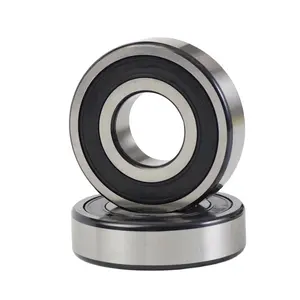
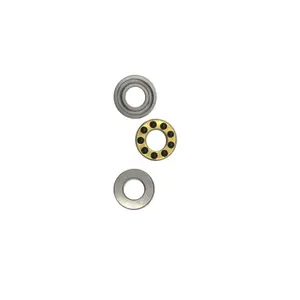
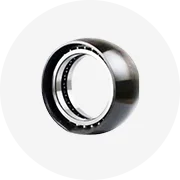

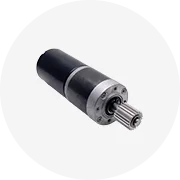


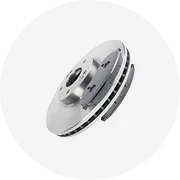










 浙公网安备 33010002000092号
浙公网安备 33010002000092号 浙B2-20120091-4
浙B2-20120091-4